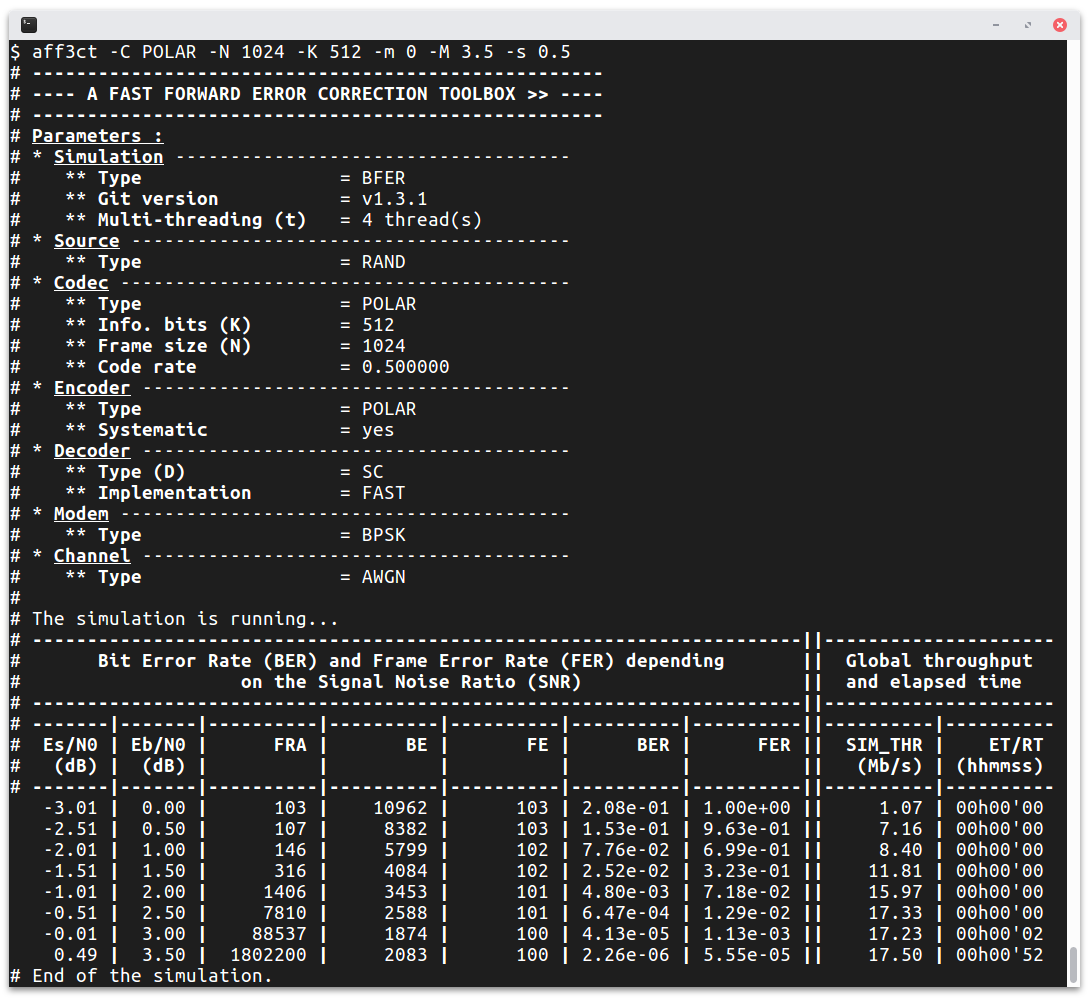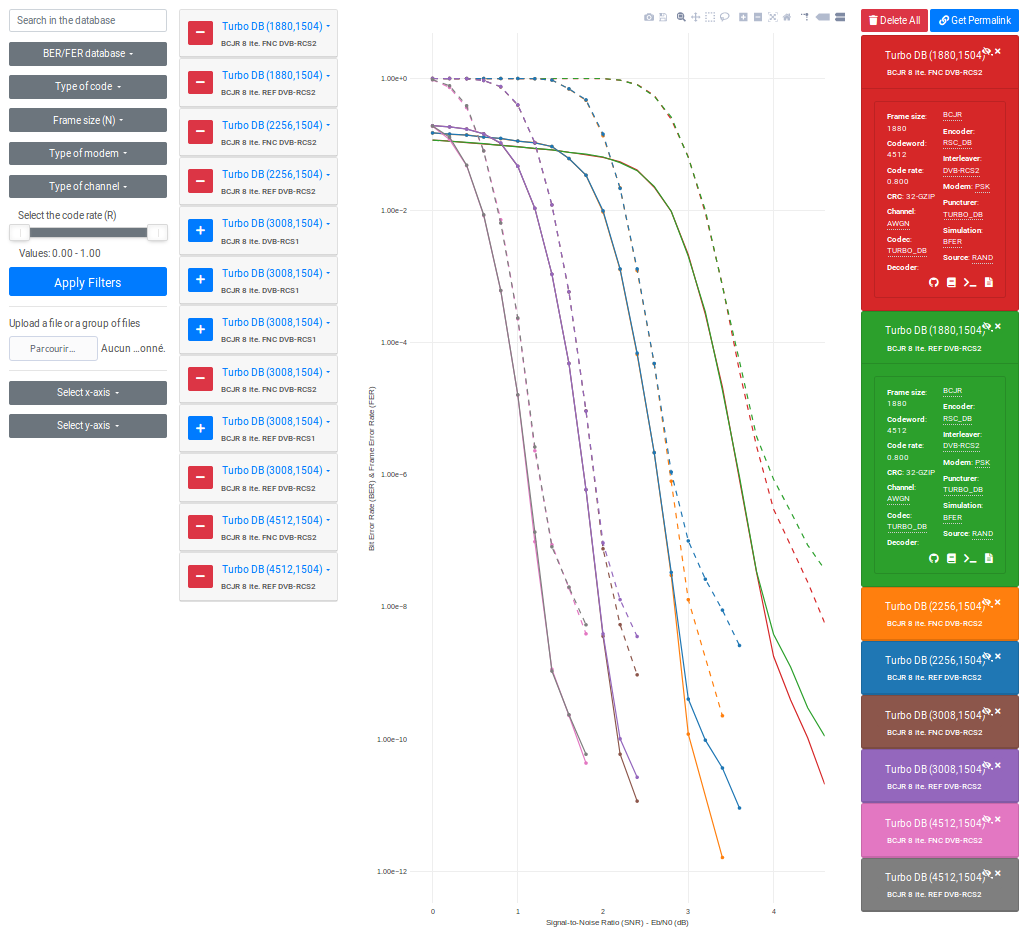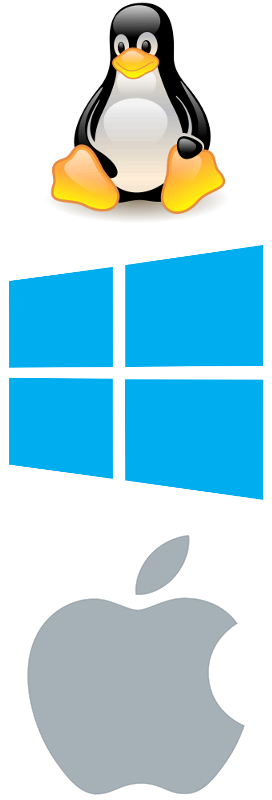A Fast Forward Error Correction Toolbox!
AFF3CT is an Open-source software (MIT license) dedicated to the Forward Error Correction (FEC or channel coding) simulations. It is written in C++11 and it supports a large range of codes: from the well-spread Turbo codes to the new Polar codes including the Low-Density Parity-Check (LDPC) codes. A particular emphasis is given to the simulation throughput performance (hundreds of Mb/s on today's CPUs) and the portability of the code.
The source code is freely available and hosted by GitHub.




